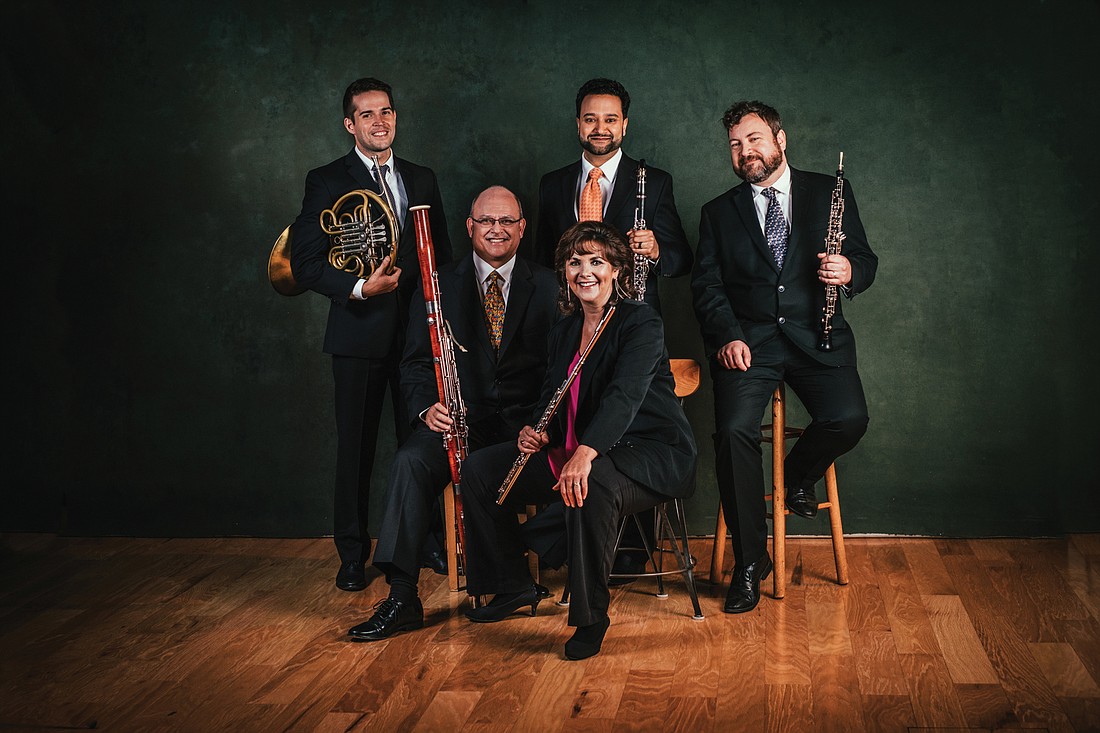- January 14, 2025
-
-
Loading

Loading

Sarasota Orchestra opened its 70th anniversary season this past week with two chamber concerts in Holley Hall of the Friedman Symphony Center. Thursday’s concert, “Out of the Opera Pit,” featured two musical oddities and one well-known work by composers who were mostly known for their vocal and operatic endeavors.
Rossini was known to write short inconsequential chamber pieces for his own amusement — and fees from commissions — in between his operas, but he is best known for the 38 operas he wrote before he “retired” at the age of 37.
His “Duetto for Double Bass and Cello” was commissioned to be performed by a virtuoso bassist and amateur cellist, and the score reflects this difference. Beautifully played by Principal Bass John Miller and Principal Cello Natalie Helm, the “Duetto” shows Rossini’s musical sense of humor at its best. Even though the bass part is full of fast-moving passage work, the cello’s music is certainly far removed from amateur status. Both Miller and Helm gave us beautiful legato and phrasing, with lovely clear lines and lots of virtuoso “instrumental coloratura” when it was called for. It’s a delightful piece, especially as played by these two fine musicians.
On the other hand, Verdi’s only known piece of instrumental music is his String Quartet in E Minor, which was given an excellent performance by the Sarasota String Quartet, Christopher Takeda and Daniel Jordan, violins; Steven Laraia, viola; and Natalie Helm, cello.
Even though Verdi’s themes remind us of his vocal lines, he uses them in such a way that they reflect his love of the Beethoven quartets, which scores he is said to have kept by his bedside and known by heart.
Each movement reminds us of Verdi’s love of melodic line, and the waltz-like feeling in the second movement leads on to a third, which gives hints of Mendelssohn in its sprightliness. The finale is a real Verdian fugue, with tripping triplets and fast-moving figures reminding us of music drama to come in “Otello” and “Falstaff.”
The quartet was more than equal to the occasion, giving a stirring performance, which was greeted with great applause.
Closing the first concert was the familiar “Siegfried Idyll,” Richard Wagner’s birthday gift to his wife, Cosima. Performed in the original instrumentation of 13 instruments, the Idyll is actually calm and soothing when compared to all the drama and sometimes excess orchestration of his operas.
This “Siegfried Idyll” was performed without a conductor, but the group was led with confidence by violinist Jennifer Takeda, who made it all flow together for a most musical performance of this repertoire standard.
Sunday’s concert was themed “Colorful Combinations” and opened with Jurriaan Andriessen’s “Sciarada Spagnuola” for wind quintet, followed by Mozart’s Piano Quartet in G Minor, which I, unfortunately was unable to hear.
However, the concert ended with one of Stravinsky’s major chamber works, “L’Histoire du Soldat” (The Soldier’s Tale) for an ensemble of seven players. Stravinsky wrote this work in 1918, so this performance was really a centennial tribute to this small but monumental work.
The nine movements of “Histoire” illustrate Stravinsky at his very best in writing for small ensemble. Each player has an important voice to add to what is at some points cacophony and at others simple and lyrical, and this ensemble of players was more than equal to the task.
The general style of the piece is reminiscent of his “Petroushka,” yet it is so refined and distilled that it could be called “lean, mean and playful.” The nine movements feature all the instruments in various combinations and present both a musical and tactical challenge to all the players, ranging from satirical marches to ragtime rhythms. These fine players performed without a conductor, a formidable task for this piece, enhancing the musical impression, especially Samantha Bennett, violin, Fernando Traba, bassoon, and George Nickson, percussion.
All made for the beginning of a stellar anniversary season for the Sarasota Orchestra and its many programs.